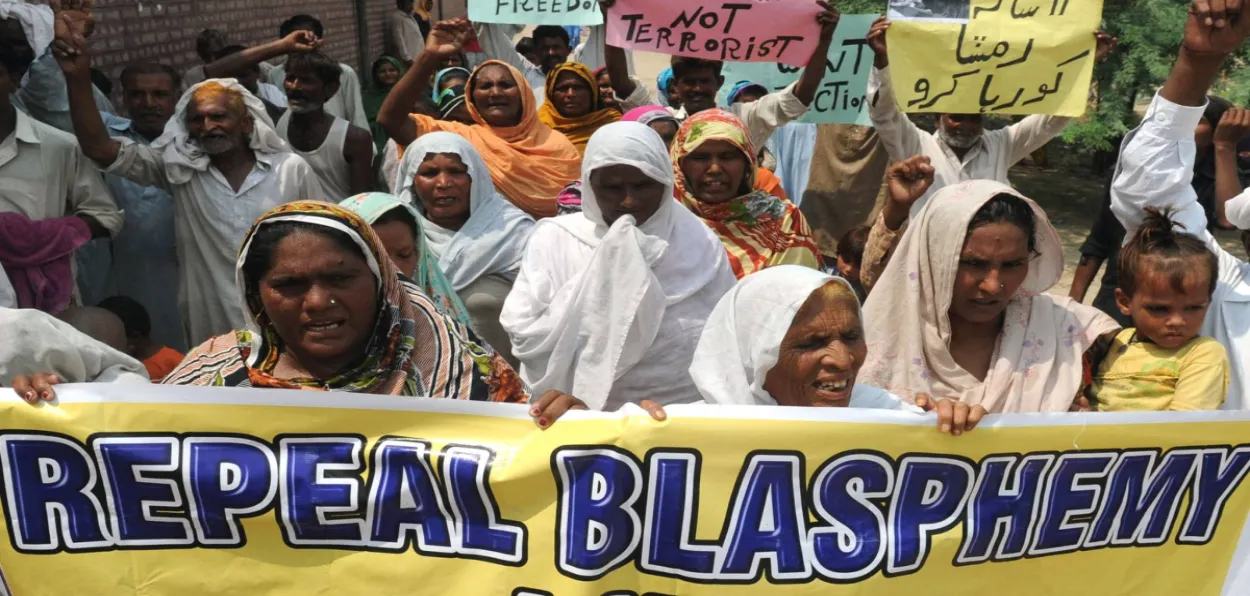
Amir Suhail Wani
The publication of cartoons depicting the Prophet Muhammad by Charlie Hebdo in 2015 sparked widespread outrage across many Muslim nations, leading to tragic episodes of violence. The attacks in Paris, which resulted in the deaths of 12 individuals at the magazine's offices, served as a shocking reminder of the volatile intersection between freedom of expression and religious sensitivity.
In the wake of the attacks, protests erupted in various countries, sometimes escalating into violence against perceived blasphemy. This reaction, often characterized by mob violence and destruction, stands in stark contrast to the merciful teachings of Islam and the example set by its Prophet Muhammad, who emphasized patience, forgiveness, and compassion even in the face of provocation.
Many scholars argue that the violent responses to such incidents betray the core values of Islam. The Prophet Muhammad himself endured mockery and hostility but chose to respond with mercy rather than vengeance. This approach is echoed in the Quran, which promotes peace and dialogue over retribution. Yet, in the aftermath of incidents like Charlie Hebdo, it is evident that some factions within the Muslim world have misinterpreted these principles, allowing anger and a thirst for revenge to overshadow the more profound teachings of the faith.
Recent cases, such as that of Tariq Masood, a respected Islamic scholar facing backlash for alleged blasphemous remarks, exemplify the dangerous volatility surrounding accusations of blasphemy. Despite his intentions to educate, the quick escalation of outrage demonstrates how easily these accusations can spiral into chaos.
Similarly, the assassinations of Pakistani politicians like Salman Taseer and Shahbaz Bhatti illustrate the lethal consequences of challenging blasphemy laws in Pakistan. Such events highlight a precarious reality where freedom of expression is stifled by fear of mob violence and vigilantism.
Historically, blasphemy laws in Islam are grounded in Quranic and Hadith sources, which condemn acts of disrespect toward God and the Prophet. While traditional interpretations have called for harsh penalties, the modern application of these laws is often influenced by political and social agendas, resulting in a culture of fear.
In Pakistan, the Blasphemy Law has been manipulated for personal vendettas, leading to tragic outcomes where individuals are targeted, sometimes fatally, based solely on accusations.
The issue of blasphemy is not confined to Pakistan; countries like Saudi Arabia, Iran, and Indonesia also grapple with the consequences of such accusations, often leading to severe punishments, including imprisonment and death. The case of an Indian journalist jailed for allegedly insulting religious sentiments illustrates how rapidly tensions can escalate, sparking an international outcry and raising questions about the balance between respect for religion and the right to free expression.
International human rights organizations, including Human Rights Watch and Amnesty International, advocate for the abolition of blasphemy laws, asserting that they violate the right to free expression and disproportionately target marginalized communities. The global consensus is shifting toward recognizing the need for laws that protect individuals from harm rather than stifle dissent.
Traditional interpretations often call for severe punishment, reflecting a longstanding concern for preserving the sanctity of faith. However, the application of these laws has evolved, particularly in the modern context, where political, social, and cultural factors significantly influence enforcement. In Pakistan, the Blasphemy Law, initially enacted during British colonial rule and intensified in the 1980s, has been manipulated for personal vendettas and political agendas.
This distortion of religious principles has created a culture of fear, where individuals can be targeted for accusations leading to violence and extrajudicial killings. Scholarly opinions on blasphemy laws vary widely. Classical scholars like Ibn Hanbal and Ibn Taymiyyah have traditionally endorsed severe penalties, whereas contemporary scholars advocate for a more nuanced approach.
Prominent Islamic jurist Mohammad Hashim Kamali emphasizes that Islamic teachings should prioritize mercy and justice, arguing that the Quran promotes dialogue and patience instead of retribution. Similarly, contemporary scholar Amina Wadud calls for a re-evaluation of blasphemy definitions and enforcement, stressing the importance of context and intention in understanding religious texts. This divergence points to the necessity of revisiting blasphemy laws to align them with modern societal norms and human rights considerations.
Reforming blasphemy laws is urgent. Potential legal reforms could involve clearer definitions of blasphemy, penalties for false accusations, and ensuring that allegations are addressed through established legal processes rather than mob justice. By revisiting these laws, societies can better protect individual rights and promote a culture that values dialogue over violence. Education is paramount in addressing the blasphemy crisis. Promoting an understanding of Islamic principles centered on compassion and mercy can help counter the trend toward violence. Initiatives encouraging interfaith dialogue and critical thinking can cultivate a more tolerant society, challenging extremist narratives while providing a platform for scholars and leaders to promote peaceful interpretations of Islam.
ALSO READ: Alternative Nobel winner Palestinian pacifist Issa Amro studied Gandhi
The rise of blasphemy-related violence necessitates a critical reflection on its societal implications. Islam fundamentally advocates for compassion, understanding, and justice, making it vital for communities to engage in open dialogue about reforming blasphemy laws. By prioritizing education and fostering a culture of understanding, societies can begin to heal from the scars of violence, moving toward a future where faith is defended through dialogue rather than fear. This path forward requires a collective commitment to re-evaluating how blasphemy is understood and enforced, ensuring that laws serve to unite rather than divide.
